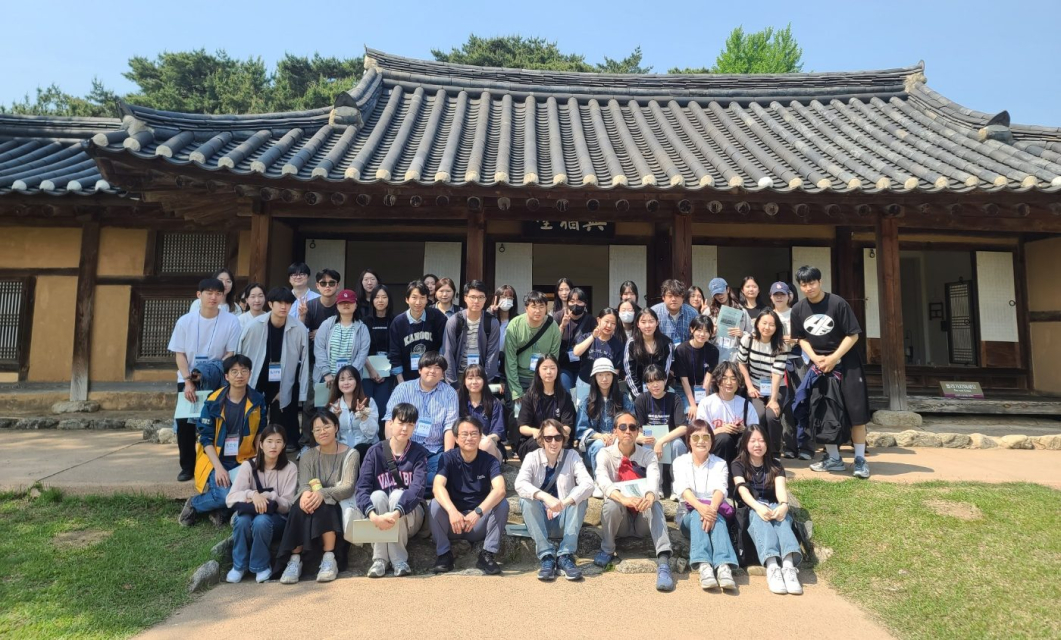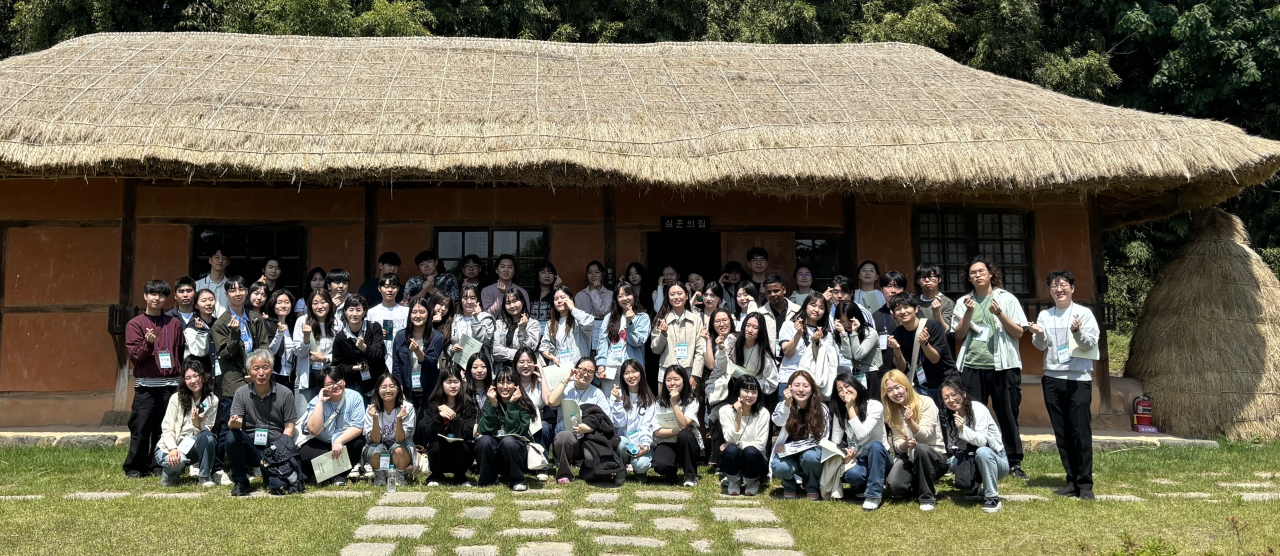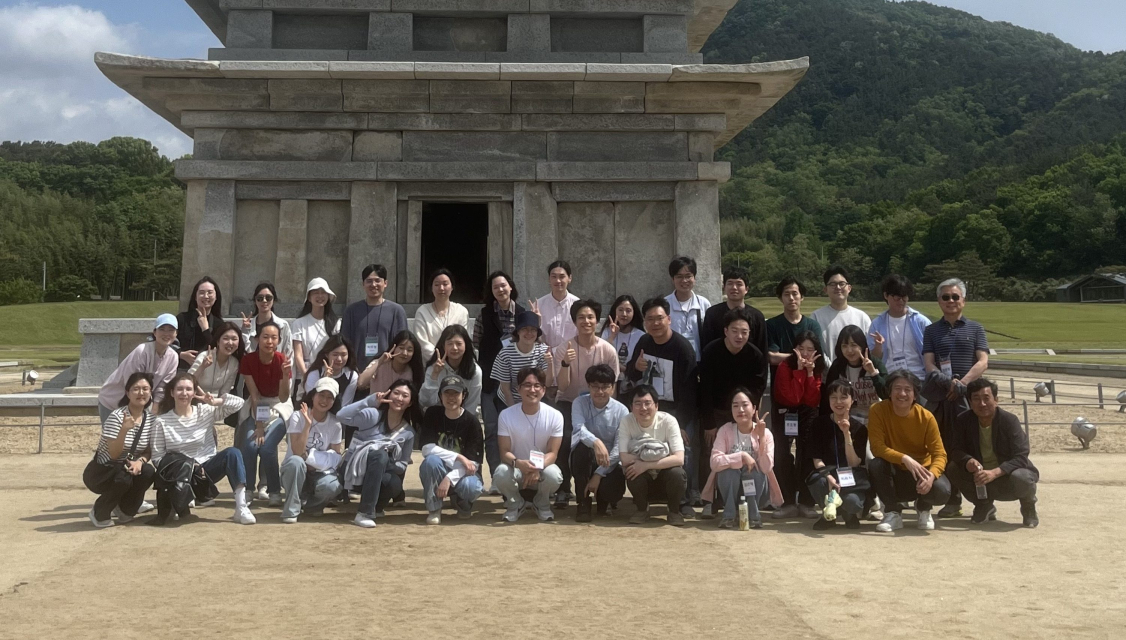Introduction
The Department of Korean Language and Literature aims at the creative inheritance and development of Korean culture through the study of Korean language and literature. As Korean life is intertwined with its language, and the spirit of that life is contained within Korean literary works, the study of Korean language and literature likes at the core of Korean humanities. The Department of Korean language and Literature offers advanced training in Korean language and literature. The curriculum is divided into Korean linguistics, classical Korean literature, and modern Korean literature. Undergraduates are required to take courses in all three areas so as to get sound training in the basic features of Korean language and literature. Such knowledge serves well not only those destined to go on to graduate studies in the field, but also aids those working in various careers after graduation.
Students run various extracurricular activities through the department’s Student Association, whose chair and officers are elected every year. The elected officers serve other students in the department by organizing departmental events and looking after student welfare. Undergraduates in the department also belong to various student-led “academic societies” according to their respective interests. Such academic gatherings are run autonomously by students and anyone is free to join them. At the gatherings, students are able to inform themselves of a broad range of subjects in addition to their fields of interest. The academic societies were formed with the purpose of providing a forum for free and earnest exchange of opinions between students on the state of affairs in Korean society and on the rightful stance of the intellectual vis-à-vis on-going events in society.
After graduation, students seek employment on the job market or enroll in graduate studies. In the past most have worked as journalists, producers and writers, as junior-high and high school teachers, as novelist, poets and literary critics, and as copywriters in the advertising industry or in the financial sector (banks, securities firms, credit card firms, insurance companies). Nowadays, however, many students also go on to work in internet-related companies and multimedia firms. As for those continuing on to advanced studies in graduate school, while some choose to seek employment after obtaining the master’s degree, most choose to continue on to the doctoral program. Those graduating with a ph.D. may be found teaching at universities throughout the country, playing leading roles in the field of Korean language and literature.
Students run various extracurricular activities through the department’s Student Association, whose chair and officers are elected every year. The elected officers serve other students in the department by organizing departmental events and looking after student welfare. Undergraduates in the department also belong to various student-led “academic societies” according to their respective interests. Such academic gatherings are run autonomously by students and anyone is free to join them. At the gatherings, students are able to inform themselves of a broad range of subjects in addition to their fields of interest. The academic societies were formed with the purpose of providing a forum for free and earnest exchange of opinions between students on the state of affairs in Korean society and on the rightful stance of the intellectual vis-à-vis on-going events in society.
After graduation, students seek employment on the job market or enroll in graduate studies. In the past most have worked as journalists, producers and writers, as junior-high and high school teachers, as novelist, poets and literary critics, and as copywriters in the advertising industry or in the financial sector (banks, securities firms, credit card firms, insurance companies). Nowadays, however, many students also go on to work in internet-related companies and multimedia firms. As for those continuing on to advanced studies in graduate school, while some choose to seek employment after obtaining the master’s degree, most choose to continue on to the doctoral program. Those graduating with a ph.D. may be found teaching at universities throughout the country, playing leading roles in the field of Korean language and literature.
List of Professor
| Name | Major | Contact | |
|---|---|---|---|
| Kim Dae-Joong Professor |
Korean Literature(Sino-Korean Literature) | 02-880-6056 | niemand@snu.ac.kr |
| Kim Seong-Kyu Professor |
Korean linguistics(Phonological History) | 02-880-9194 | kyukor@snu.ac.kr |
| Kim You-Joong Professor |
Korean literature-modern Korean poetry | 02-880-6050 | chumdankim@snu.ac.kr |
| Kim Joung-Uck Professor |
Korean literature modern Korean novel | 02-880-6051 | novelica@snu.ac.kr |
| Kim Hyun Professor |
Korean linguistics Korean phonology | 02-880-6071 | kim0219@snu.ac.kr |
| Mun Suk-Yeong Professor |
Korean linguistics Korean grammar theory | 02-880-6052 | suyeong@snu.ac.kr |
| Park Jin-Ho Professor |
Korean linguistics Korean syntax | 02-880-2497 | synpjh@snu.ac.kr |
| Bang Min-Ho Professor |
Korean literature modern Korean novel | 02-880-9095 | rady@snu.ac.kr |
| Seo Cheol-Won Professor |
Korean literature classical Korean poetry | 02-880-6048 | sanoe765@snu.ac.kr |
| Son Yu-Kyuong Professor |
Korean literature modern novel and criticism | 02-880-6053 | kyung75@snu.ac.kr |
| Lee Jong-Mook Professor |
Korean literature Sino-Korean poetry | 02-880-1446 | mook1446@snu.ac.kr |
| Lee Jin-Ho Professor |
Korean linguistics(phonology) | 02-880-6069 | ljh1@snu.ac.kr |
| Lee, Hwajin Assistant Professor |
Modern Korean Drama and Visual Media Literature | 02-880-6044 | hwajinlee@snu.ac.kr |
| Chang So-Won Professor |
Korean linguistics_text linguistics | 02-880-6032 | sowon@snu.ac.kr |
| Jang Yoonhee Professor |
Korean linguistics Korean grammar theory | 02-880-6035 | jangyh@snu.ac.kr |
| Jun Young-Chul Professor |
Korean linguistics Korean semantics | 02-880-9075 | ycjun@snu.ac.kr |
| Chung Kil Soo Professor |
Korean Literature(Classical Novels) | 02-880-6061 | anakia@snu.ac.kr |
| Jung Byung-Sul Professor |
Korean literature classical Korean novel | 02-880-6036 | jung30@snu.ac.kr |
| Jung Seung-Chul Professor |
Korean linguistics Korean dialectology | 02-880-6033 | scjung@snu.ac.kr |
| Cho Hae-Sug Professor |
Korean literature classical Korean poetry | 02-880-1484 | chs1484@snu.ac.kr |
| Cho Hyun-Soul Professor |
Korean literature oral literature | 02-880-9290 | soulcho@snu.ac.kr |
| Choi Yoonji Associate Professor |
Korean Linguistics Korean syntax and semantics | 02-880-6054 | choiyoonji@snu.ac.kr |
| Hong Seung-Jin Assistant Professor |
Korean Literature(Modern Poetry) | 02-880-6042 | damyun@snu.ac.kr |
| Hwang Seon-Yeop Professor |
Korean linguistics_history of Korean language | 02-880-6102 | hsy@snu.ac.kr |
| Charles La Shure Professor |
Korean literature oral literature | 02-880-1381 | nasuho73@snu.ac.kr |






